



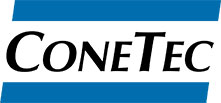
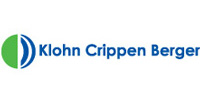
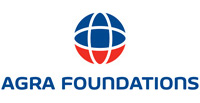


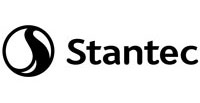
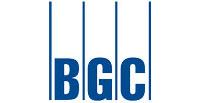


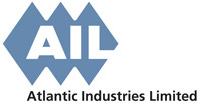

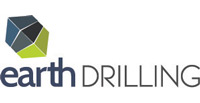
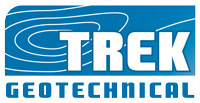
Short Courses / Workshops
GeoEdmonton 2018 is pleased to offer the following short courses at the Shaw Conference Centre on Sunday, September 23 as part of the official conference program:
- SC1 - Geotechnical Engineering in Permafrost Regions
- SC2 - GeoCharacterization Using the Cone Penetration Test
- SC3 - Limit States Design
- SC4 - Practical Aspects of Core Logging for Engineering Purposes
- SC5 - Geomodelling Fundamentals to Support Subsurface Investigations
Short Courses will be given in English only.
GeoEdmonton 2018 reserves the right to cancel a short course/workshop should the minimum number of registrants not be reached. In the event of a cancellation, registrants will be notified by email and offered a transfer to another course/workshop or a full refund.
SC1 - Geotechnical Engineering in Permafrost Regions
Instructors: Kevin Jones and Ed Hoeve
Date: Sunday, September 23, 2018
Time: 8:00 a.m. - 5:00 p.m.
Cost: Before September 8 - $425 (Students $200) | On/After September 8 - $475 (Students $225)
The topics covered will be:
- Understanding permafrost terrain
- Site investigations
- Foundation design, construction management and monitoring
- Geotechnical design of roads in permafrost regions
- Mining infrastructure: water management and tailings containment
- The significance of climate uncertainty
- Introduction to CSA Technical Guide Plus 4011-10
This course is geared towards companies and practitioners interested in expanding their business into areas where frost penetration and permafrost conditions prevail. In depth focus will be on northern regions of western provinces and current states of practice.
About the instructors:
Kevin W. Jones, P.Eng., is a consulting engineer who has been entirely focused on geotechnical engineering in arctic regions around the circumpolar north for over 37 years. Kevin is the Vice President, Arctic Development for Tetra Tech’s, Arctic Engineering Group. His experience includes: permafrost engineering, arctic offshore engineering, arctic geotechnical investigation, and the design and analysis of varied structures in the arctic areas of Canada, Alaska, and Russia. He has been involved in numerous arctic linear transportation infrastructure projects including both roads and railways in permafrost terrain. He has worked extensively on northern resource development projects, both in the mining and oil and gas sectors.
Kevin is a past Chairman of the Cold Regions Division of the Canadian Geotechnical Society and was a volunteer author of the recently published National Standard of Canada, Geotechnical Site Investigations for Buildings in Permafrost Zones, recently published by the Bureau de Normalization du Québec.
Ed Hoeve, P.Eng., is a senior geotechnical engineer with 35 years of northern experience, the last 29 of those gained while based in Yellowknife, working on projects focused on community infrastructure throughout the Northwest Territories and Nunavut. He is thoroughly familiar with the practical constraints on foundation and earthworks design and construction in the north, and is recognized as a local authority in this regard. He has been engaged in consulting practice his entire career and has developed an awareness of the perspectives of other members of a project team, such as owners, architects, structural engineers and contractors. Thus, he is able to collaborate with a project team so that geotechnical considerations are addressed on a project in a practical and effective manner.
SC2 - GeoCharacterization Using the Cone Penetration Test
Instructor: Paul Mayne
Date: Sunday, September 23, 2018
Time: 8:00 a.m. - 5:00 p.m.
Cost: Before September 8 - $425 (Students $200) | On/After September 8 - $475 (Students $225)
The seminar will introduce CPT technology and provide an overview of CPT interpretation. Many applications and case histories will be covered with an emphasis on site characterization and the evaluation of geoparameters for analysis and design, as required input for FEM and analytical methods. In addition, the use of CPT in direct applications to shallow & deep foundations and seismic geotechnics will be addressed, including the evaluation of soil liquefaction potential. A set of reference notes and supporting technical documents will be provided to participants.
About the instructor:
Dr. Paul W. Mayne. P.E., is a professor of Civil & Environmental Engineering at the Georgia Institute of Technology. With 41 years in geotechnical engineering, Paul's expertise is in the areas of geotechnical site characterization, including cone, piezocone, dilatometer, and seismic tests with applications to foundation systems and ground modification. He has given invited lectures internationally and provides CPT workshops & short courses around the world. Of recent, he completed the 2007 Manual on Cone Penetration Testing (Synthesis 368: www.trb.org), SOA-1: Geomaterial Behavior & Testing at the 17th ICSMGE in Egypt in 2009, ASCE SOA lecture on in-situ testing (GeoOakland 2012), the 2013 Jennings Lecture in South Africa, 16th Sowers Lecture (2013), James Hoover Distinguished Lecture at Iowa State Univ. (2014), invited keynote lecture at CPT’14, 2014 Hal Hunt Lecture at the 39th Annual DFI Conference, invited keynote lecture at ISC-5 Brisbane (2016), the Nonveiller Lecture in Zagreb (2016), and the 34th Manuel Rocha Lecture in Lisbon (2017). Dr. Mayne is an active member of ASCE, TRB, DFI, ADSC, CGS, USUCGER, and ISSMGE and served as the chair of the international committee on in-situ testing (TC 102) from 2000-2013 and as the ISSMGE Vice President for North America from 2013-2017.
SC3 - Limit States Design
Instructors: Dennis Becker and Gordon Fenton
Date: Sunday, September 23, 2018
Time: 8:00 a.m. - 5:00 p.m.
Cost: Before September 8 - $425 (Students $200) | On/After September 8 - $475 (Students $225)
About the instructors:
Dr. Dennis E. Becker, P.Eng., is a Principal and Senior Geotechnical Engineer at Golder Associates with more than 40 years of national and international experience on numerous large scale civil engineering and resource development projects. Dennis has substantial experience with all aspects of geotechnical engineering, and has developed extensive and varied areas of expertise. He is frequently responsible for overall technical and administrative control for projects that involve difficult ground conditions and/or require the development of innovative solutions using both standard and new technologies. His prime areas of expertise include site characterization, foundations, stability of slopes and excavations, earth dams and tailings management areas, liquefaction potential evaluation, soil-structure interaction, ground improvement, specialized geotechnical analysis/modeling, and fundamental soil behaviour.
Dennis serves on technical committees of the Canadian Standards Association (CSA), National Building Code of Canada, Canadian Highway Bridge Design Code and CSA Offshore Code (Foundations), extensively involved with the development and implementation of limit states design (LRFD) for foundations, and was Co-Editor of the 4th Edition of the Canadian Foundation Engineering Manual. He has received senior awards from the Canadian Geotechnical Society, Engineering Institute of Canada and Canadian Society of Civil Engineers, and is a Fellow of the Canadian Academy of Engineering and Engineering Institute of Canada. Dennis was President of the Canadian Geotechnical Society, Vice-President (North America) of the International Society for Soil Mechanics and Geotechnical Engineering (ISSMGE) and Editor of the Canadian Geotechnical Journal.
Dr. Gordon Fenton, P.Eng., is a Professor cross-appointed to the Civil Engineering and Engineering Mathematics Departments at Dalhousie University. His research interests include probabilistic modeling of geotechnical systems and the development of geotechnical reliability-based design codes. He has authored over 140 peer-reviewed papers and is currently Chair of the Canadian Highway Bridge Design Code Foundations and Geotechnical Systems Subcommittee, chair of the National Building Code of Canada (NBCC) Task Group on Reliability-Based Geotechnical Design, and a member of the NBCC Standing Committee on Structural Design. He is also the North American Managing Editor for the international journal Georisk, past chair and current member of the ASCE Geo-Institute Risk Assessment and Management Committee, and past chair and current member of the ISSMGE TC304 Engineering Practice of Risk Assessment and Management Committee. For his research efforts, Dr. Fenton was selected by the Canadian Geotechnical Society to deliver the Cross-Canada Lecture Tour in the fall of 2015, and by the Canadian Society of Civil Engineering to deliver the CHBDC lecture tour in Eastern Canada in the spring of 2016. He has received the C. Allin Cornell Award from the International Civil Engineering Risk and Reliability Association, the Thomas C. Keefer Award from the Canadian Society for Civil Engineering, the George Stephenson Medal from the Institution of Civil Engineers, the Gzowski Medal from the Engineering Institute of Canada, and was elected a Fellow of both the Canadian Academy of Engineering and the Engineering Institute of Canada. His research work is summarized in his textbook Risk Assessment in Geotechnical Engineering (Wiley, 2008).
SC4 - Practical Aspects of Core Logging for Engineering Purposes
Instructors: Adam Coulson, Éliane Cabot, Mohsen Nicksiar, Samuel Proskin, and Nicholas Vlachopoulos
Date: Sunday, September 23, 2018
Time: 8:00 a.m. - 5:00 p.m.
Cost: Before September 8 - $425 (Students $200) | On/After September 8 - $475 (Students $225)
The objective of this short course is to familiarize participants with a comprehensive core logging methodology, developed on hard rock core, in order to provide reliable input parameters for the development of rock mass ratings. In addition, an alternate methodology is presented for soft rock core based on the process of hydrothermal alteration and rock degradation. Recommendations for core sampling for further laboratory strength testing will be provided along with tips on additional field measurements.
About the instructors:
Dr. Adam Coulson, P.Eng., will be the lead instructor and is a rock mechanics engineer with over 25 years of experience in the mining industry, specializing mainly in open pit and underground mine design in hard rock, and a range of rock mechanics aspects. He has been involved in leading multidisciplinary teams, coordinating and conducting detailed rock mechanics mining scoping, pre/feasibility studies and detailed design/evaluation/review/monitoring of underground excavations at existing operations in Canada and internationally. He has been the lead for rock mechanics investigations of numerous underground and open pit mining projects and some technically challenging projects involving facilitation of qualitative risk assessment with project stake holders. Adam was also a representative on a number of international and Canadian rock mechanics projects/committees, such as the Executive Steering Committee of the International Caving Study (ICS I), Industrial Review Committee for the Mitigation of Violent Failure Processes in Deep Underground Mining (MIRACO) and has sat on the Industrial Committee for Canadian Mining Industry Research Organization (CAMIRO). Dr. Coulson, as well as previously being an adjunct professor at the University of Toronto, has given a number of short courses to industrial practitioners on topics of rock mechanics as well as short courses on the mining industry to non-practitioners.
Éliane Cabot, P.Eng., is a well-diversified engineer with 18 years of experience in geological engineering working in Canada and abroad. Her geotechnical experience includes subsoil and rock investigations, core orientation, geomechanical core logging/sampling, packer testing, in situ stress measurements and borehole instrumentation. Through her experience, Éliane has gained significant expertise in fieldwork planning, field crew supervision, data monitoring and sampling techniques for laboratory strength testing (ASTM, ISRM). Over the years, she has trained several field staff and young engineers on field data collection and QA-QC over different field investigation programs of various complexity. Her involvement in open pit and underground mine design (building numerical models for stress analysis and performing backfill & stope assessments for mine operation and/or closure) provides her with a solid understandings of proper data collection and relevance for quality data.
Dr. Mohsen Nicksiar, PhD., P.Eng., is a Senior Geotechnical Engineer and Project Manager at SNC-Lavalin with 16 years of experience of interdisciplinary professional experience in geohazard analysis, geotechnical engineering and hydrogeology internationally and across Canada. He has an extensive knowledge in performing and managing a variety of multi-million dollar major infrastructure projects with geotechnical and geological projects involving geohazard risk assessment, slope stability analysis, retaining structure design, foundation analysis and advanced numerical modelling. His experience in major design-build projects across Canada position him to expertly handle projects with various technical components and constraints, and multi-disciplinary team collaboration. He has published several papers in different well-known journals regarding the behaviour of rocks under different stress magnitude to evaluate spalling strength. He also introduced the most robust methodology to determine crack initiation stress in different rock types that is widely used throughout the world.
His experience in helping different federal, provincial and municipal governments in regulatory assessment brought him excellent experience in helping the government bodies in evaluating different projects specifically to protect public and the environment. He is the Chair of Rock Mechanics Division in Canadian Geotechnical Society (CGS) and executive member of Canadian Rock Mechanics Association (CARMA).
Dr. Samuel Proskin, P.Eng., is a senior geotechnical engineer with Thurber Engineering with 24 years of consulting experience in the mining, oil and gas, and public sectors in western Canada, NWT, Nunavut and Yukon Territory. Since joining Thurber in 2015, Samuel provides senior geotechnical engineering support for earthfill structures and permafrost and provides leadership to the tailings geotechnical group in Calgary. He has provided geotechnical consulting for several northern mine sites including Diavik Diamond Mines, Ekati Diamond Mine, Jericho Mine, and DeBeer’s Snap Lake Mine and Victor Mine. Dr. Proskin participated in rock investigations related to open pit and plant site foundations for Diavik’s A154, A418 and A21 kimberlite pipe dikes and inspections for shallow and deep foundations for projects in NWT (Diavik, Ekati, and Inuvik), Nunuavut (Kugluktuk, Taloyoak and Iqaluit) and Yukon Territory (Ross River, Minto and Faro). His other experience includes geotechnical engineering of permafrost, project management for northern construction projects, ice engineering of ice roads and ice pads, and geotechnical R&D support for oil sands fine tailings.
Dr. Nicholas Vlachopoulos, P.Eng., is an Associate Professor of Civil Engineering at the Royal Military College of Canada and also holds a cross-appointment with the Geological Sciences and Geological Engineering Department as well as the School of Environmental Studies at Queen's University. Dr. Vlachopoulos is a professional engineer in Canada and in Europe with over 22 years’ experience in geotechnical/geological, geo-environmental engineering and project management on major construction and research projects, focusing on site investigations. His research focuses on: underground excavation stability and support design for tunnelling; physical and in-situ testing of tunnel support fitted with fiber optics; numerical analysis/modelling of geotechnical and environmental problems; near-face response of tunnels in weak, tectonized ground; discrete fracture networks; integration of geomechanics and geomatics; hazard assessment and risk management in geotechnical works; use of geosynthetics (polymers and composite materials) in geotechnical structures; and sustainability in geotechnical/geological engineering works.
SC5 - Geomodelling Fundamentals to Support Subsurface Investigations - Cancelled
Instructor: Kelsey MacCormack
Date: Sunday, September 23, 2018
Time: 8:00 a.m. - 5:00 p.m.
Cost: Before September 8 - $425 (Students $200) | On/After September 8 - $475 (Students $225)
The first section of this course will include:
- Brief introduction to spatial data
- Exploratory data analysis
- Basics of geostatistics so that attendees can efficiently assess and evaluate their data
- Appropriate algorithm selection to produce a robust and reliable geological model
- Concepts of geomodelling
- Necessity of 3D geological models for hydrogeological investigations
- Evaluating model uncertainty
- Model dissemination
- Using 3D geological models to enhance communication of complex geological settings to stakeholders with a variety of educational backgrounds
- Case studies highlighting the direct application of techniques and concepts provided during the course to support hydrogeological investigations
About the instructor: Dr. Kelsey MacCormack is the Director of the Mapping and Modelling Group at the Alberta Geological Survey. Her research interests include: 1) Statistical analysis of 3-D modeling algorithms and processes to evaluate model performance and predictive capabilities; 2) Developing new methodologies to improve the accuracy and reliability of 3-D models through the integration and optimization of available data sources; 3) Assessing the use of uncertainty models designed to quantify and visualize geologic model uncertainty; and, 4) Using 3D models to characterize lithology and stratigraphy in order to delineate facies geometries to accurately model subsurface units in complex environments.


